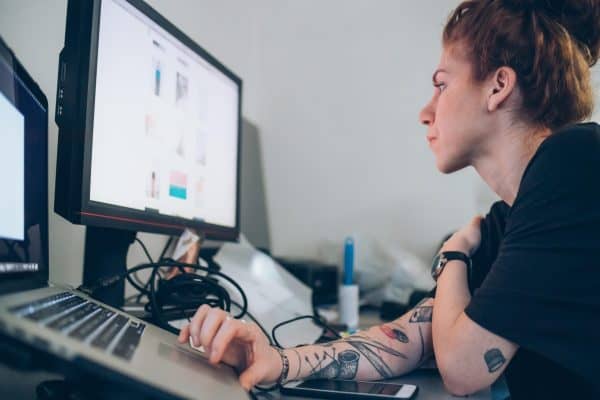The creative economy in London is undergoing a quiet revolution. What was once a closed-door industry dominated by traditional gatekeepers is now being reshaped by technology and digital-first talent platforms. At the heart of this shift is the rise of the creator economy—a movement empowering individuals to build careers in film, media, and entertainment without formal connections or institutional backing.
For decades, aspiring actors and models in the UK capital had to rely on agencies, in-person auditions, and word-of-mouth referrals to land work in television, commercials, and print campaigns. Today, a smartphone and an internet connection can open the door to thousands of opportunities, including a range of flexible, paid roles for people with no prior experience. This shift is not just changing how people find work—it is transforming what a modern media career can look like.
London’s creative edge
London’s position as a global hub for creativity, advertising, and media production makes it particularly well-suited to benefit from this transformation. Whether it is a global brand filming a campaign in Shoreditch, a Netflix drama being shot in Hackney, or an indie production seeking fresh faces in South London, the demand for diverse talent is constant—and growing.
At the same time, creators from all walks of life are now building online profiles, showcasing their personality, skill sets, and availability directly to casting professionals. This decentralisation is a win for everyone. Producers gain access to a broader, more diverse pool of talent, while performers—whether full-time or moonlighting from other careers—are empowered to take control of their own journey.
A surge in economic value
The numbers support the narrative. According to Nesta, the UK’s creative industries contributed over £115 billion to the economy in 2023. London accounted for a significant portion of that, with a concentration of media agencies, studios, and production companies calling the capital home. With advertising spend shifting toward digital and video, the appetite for new content—and new talent—is not slowing down.
Beyond influencers: Acting and modeling evolve
The creator economy has enabled a generation of talent to blend personal branding, entrepreneurial thinking, and digital know-how into sustainable careers. But while influencers and YouTubers often dominate headlines, a quieter but equally important transformation is happening in professional acting and modeling.
Every week, platforms list thousands of open roles across feature films, short films, social ads, music videos, fashion campaigns, and more. Many of these are accessible to first-time applicants. Whether someone is looking for their first on-camera experience or a chance to transition from part-time work into something more substantial, there is now a clear path forward.
Platforms that empower talent
One of the most significant enablers of this shift is the emergence of dedicated platforms that aggregate opportunities and simplify the application process. These platforms allow aspiring performers to search for roles by location, experience level, and genre—whether they are looking for commercial work, print modeling, or a film industry audition. Platforms like AllCasting provide a constantly updated list of film industry audition opportunities that are open to newcomers as well as seasoned professionals.
Making creative work accessible
This tech-driven accessibility is particularly important in a city like London, where the cost of living often requires people to juggle multiple sources of income. The ability to apply for flexible, part-time acting or modeling jobs gives many Londoners a creative outlet and an additional revenue stream. It also supports broader efforts to democratise the arts, ensuring that talent is not confined to those with financial means or industry ties.
Tech meets creativity
The role of technology in reshaping London’s creative workforce goes beyond individual job listings. Casting platforms are increasingly integrating tools for remote auditions, portfolio management, and direct messaging between talent and casting professionals. This reduces friction, improves speed to hire, and allows productions to move at the pace required by today’s always-on media environment.
What the future holds
London’s creative future will be shaped not just by the content it produces but by the infrastructure that supports it. As more productions embrace remote-first workflows, hybrid casting, and digital content formats, the value of online-first platforms will continue to grow. These platforms offer a scalable solution to an age-old problem: how to find the right person for the right role, quickly and efficiently.
But beyond utility, they also serve as a powerful equaliser. When anyone with drive and discipline can audition for a role—regardless of postcode, background, or experience—it opens up the industry to a wider, more representative range of voices. This, in turn, enriches the stories being told on screen, stage, and in campaigns around the world.
A broader definition of career success
In a post-pandemic world where remote work, hybrid careers, and side hustles are the new normal, the idea of acting or modeling as a viable second career or passion project is no longer far-fetched. For professionals across London—from office workers and entrepreneurs to students and freelancers—the door to the entertainment industry has never been more open.
The creator economy is not just changing who gets to be seen—it is changing who gets to speak. And in a city as dynamic and diverse as London, that can only be a good thing.

